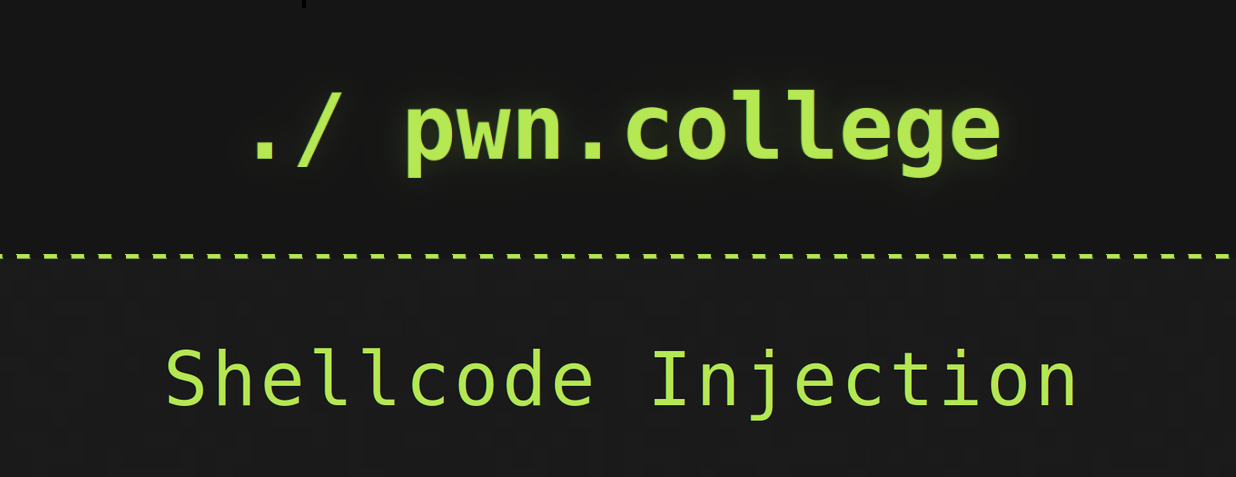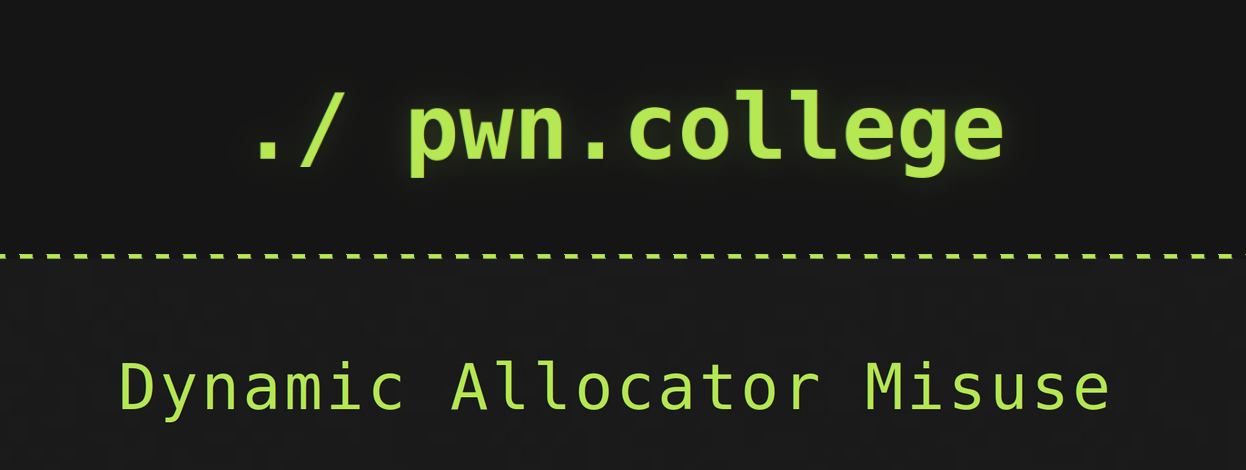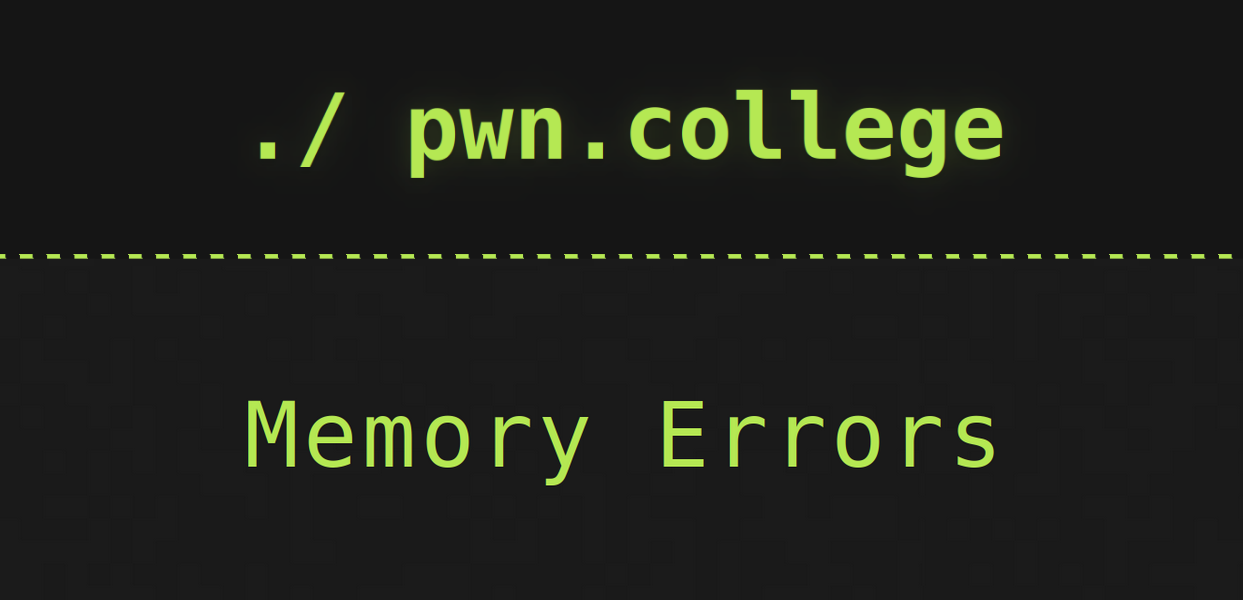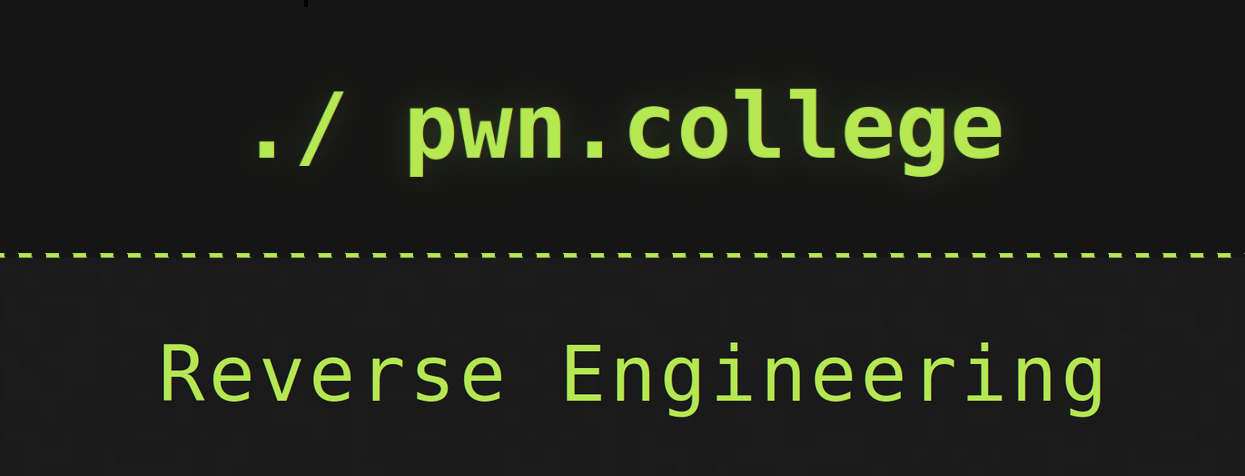Note: Most of the below information is summarized from Dr. Yan Shoshitaishvili’s pwn.college lectures from the “Shellcode Injection” module. Much credit goes to Yan’s expertise! Please check out the pwn.college resources and challenges in the sources
This module relies heavily on preexisting x86 knowledge, so if you don’t have experience with x86 then I’d recommend taking a look at the last post and learning some of the basics or the rest of this post won’t make much sense. I would HIGHLY recommend also watching the lecture videos as you are able to see actual examples of what is explained here.
What is Shellcode
- Most computer architectures treat code and data interchangeably, allowing us to manipulate data as code
- We can use shellcode to abuse this
- The “traditional” goal with shellcode is to launch a shell (
execve("/bin/sh", NULL, NULL))- want to achieve arbitrary command execution
- not always to launch a shell (read a file we don’t have permissions for)
- We can add data into out shellcode
- use
.byteor.string
- use
To write shellcode, need this format:
.global _start
_start:
.intel_syntax noprefix
your shellcode
- This will set up a global symbol to indicate the start of the shellcode (
.global _start)- This allows us to execute our code as a normal ELF file
- Indicate where the start is (
_start:) - Indicate that we are using Intel x86 instead of AT&T x86
Then we need to assemble it:
gcc -nostdlib -static shellcode.s -o shellcode-elfnostdlib: indicate we don’t want to use the standard libraries since we are instead calling them directly using systemcalls in the code-static: indicate we are only loading our code and are not dependant upon anything else-o shellcode-elf: output the compiled code into a file called “shellcode-elf”
The previous command will only create a program, not shellcode. To get the shellcode we need to do:
objcopy --dump-section .text=shellcode-raw shellcode-elf- In our ELF file, there is a
.textsection that contains our shellcode. By running this command, we are dumping the.textsection of the code into a new file we call “shellcode-elf”
- In our ELF file, there is a
Debuging:
- After compiling your code with the instructions above, you can debug your code by running
strace ./shellcode-elf- This will display everything being executed by your code, which will often assist in finding any unwanted activity
- gdb is a Linux command that allows you to walk through your code as it runs
gdb ./shellcode-elf- Caveats:
- there is no source code to display and navigate.
- to print the next 5 instructions:
x/5i $rip - you can examine qwords (
x/gx $rsp), dwords (x/2dx $rsp), halfwords (x/4hx $rsp), and bytes (x/8b $rsp) - to step one instruction (follow call instructions):
si, NOTs - to step one instruction (step over call instructions):
ni, NOTn - to break at an address/label:
break *0x400000orbreak labelName run,continue, and reverse execution work as expected
- You can hardcode breakpoints
- breakpoints are implemented with the
int3instruction - you can place this anywhere yourself!
- especially useful at the start of shellcode to catch the beginning of shellcode execution
- breakpoints are implemented with the
- Caveats:
Common Challenges
- Sometimes shellcode will not be allowed to use certain bytes as a result of how the program processes it like:

- We can get around some of these restrictions by being creative:

- Remember that data and code are interchangeable from the computers point of view, so we can data to our code as bytes that is called by other commands
- when doing this, make sure to have
.textwriteable by runninggcc -Wl, -N --static -nostdlib shellcode.s -o shellcode-elf
- when doing this, make sure to have





Please share using the links if you enjoyed!